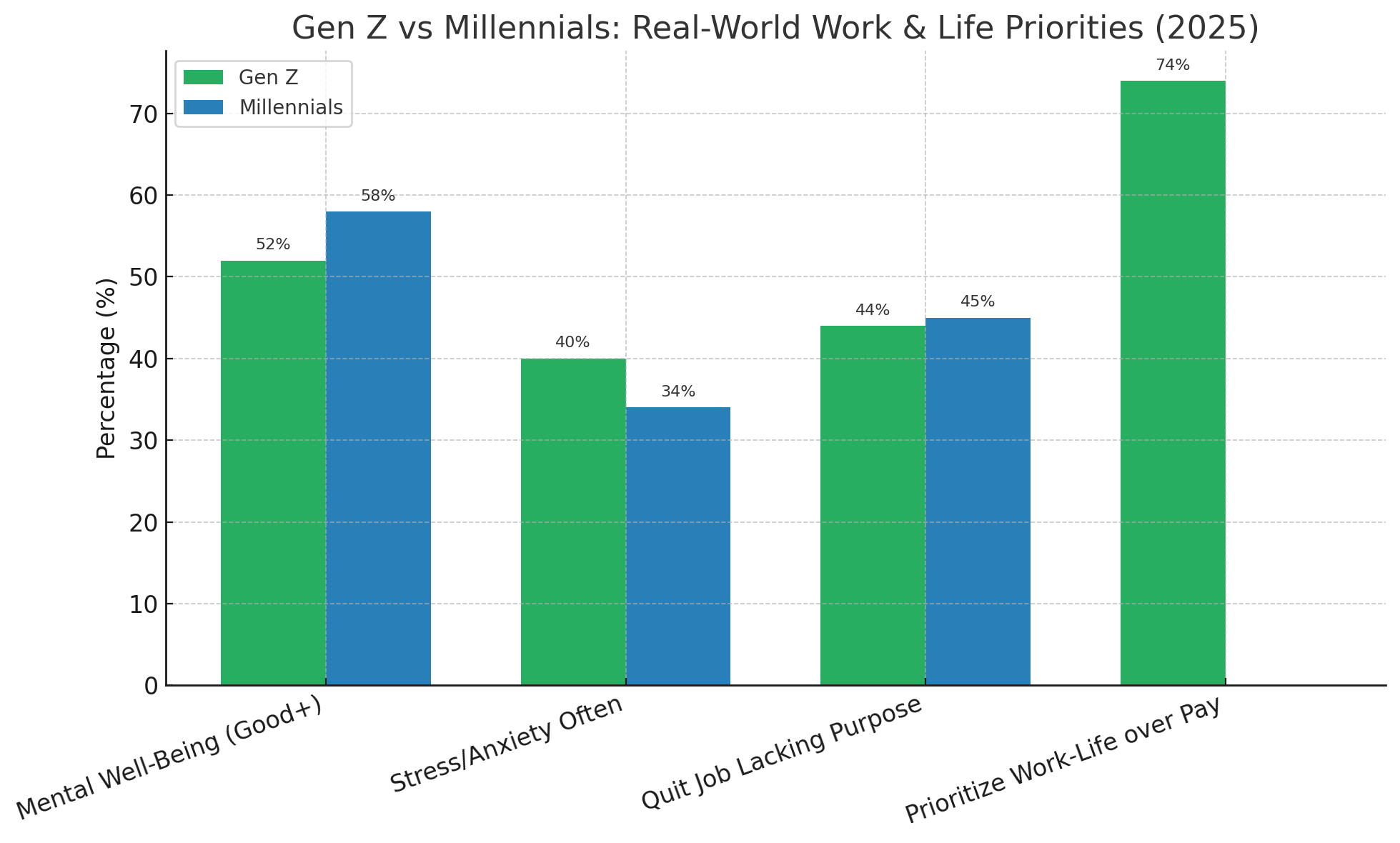A growing number of young workers are rethinking what success means. For Gen Z, mental health and balance matter more than bigger salaries.
Recent surveys show many in this generation are turning down higher-paying jobs if those roles threaten their peace of mind. Flexible schedules, remote options, and healthier workplaces now carry more weight than paychecks alone. Pew Research Center notes that younger adults consistently rank well-being and purpose above traditional financial measures of success.
This shift is showing up in the labor market. Employers say new hires ask first about mental health policies and time-off benefits, not just salary packages. A World Economic Forum report highlights that burnout has become one of the top reasons Gen Z workers leave jobs, even when pay is competitive.
Financial experts say this does not mean Gen Z ignores money. Instead, they are looking for sustainable lifestyles where financial security and mental health can coexist. Harvard Business Review has found that companies offering wellness support often see stronger retention among younger staff.

Data source: Deloitte, and Randstad
The cultural shift could reshape workplaces. Instead of long hours and constant hustle, employers may need to focus on balance and personal growth to attract the next wave of talent. For Gen Z, wealth without well-being is no longer enough.













